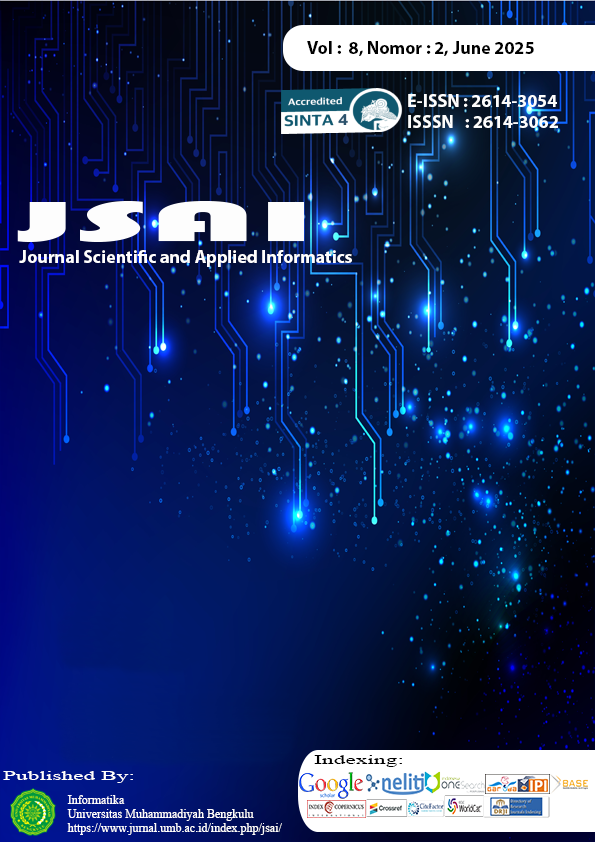Evaluation of DAPODIK Information Technology Usage Using the DeLone and McLean Model
DOI:
https://doi.org/10.36085/jsai.v8i2.8405Abstract
This study aims to evaluate the Basic Education Data System (DAPODIK) based on the DeLone & McLean model using a descriptive statistical analysis approach. The evaluation results show that the Information Quality dimension received the highest score of 86.44%, reflecting users' positive perceptions of the system's data accuracy, completeness, and relevance. The Service Quality dimension scored 84.40%, indicating good responsiveness and technical support, although there is still room for improvement in communication and service continuity. The Use dimension reached 85.33%, suggesting that the system is extensively utilized in educational operational activities. User Satisfaction obtained a score of 82.83%, the lowest among the five dimensions, yet it still reflects a high level of satisfaction, with potential for improvement in technical and user experience aspects. Meanwhile, the Net Benefits dimension scored 85.33%, signifying that the DAPODIK system provides positive impacts on work efficiency, data accuracy, and administrative coordination. These findings indicate that overall, the DAPODIK system performs well and offers tangible benefits, but continuous improvements are needed to optimize user experience and system effectiveness.
Downloads
Published
Issue
Section
License
Copyright (c) 2025 Achmad Rofiqi Arwin, Ferawati Ferawati, Neng Linda Badratul Laela

This work is licensed under a Creative Commons Attribution-NonCommercial-NoDerivatives 4.0 International License.







